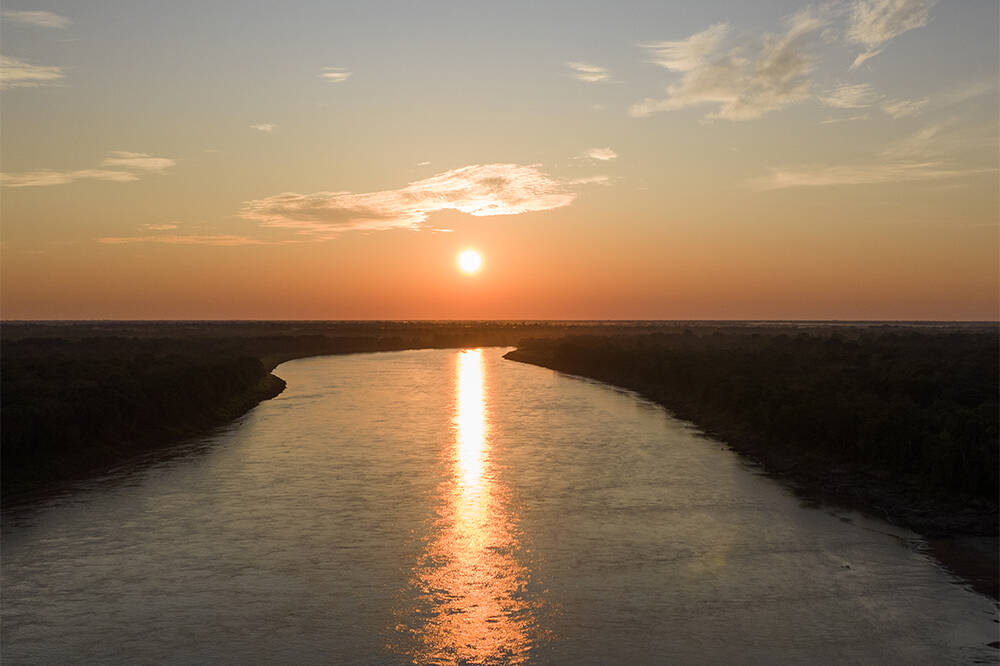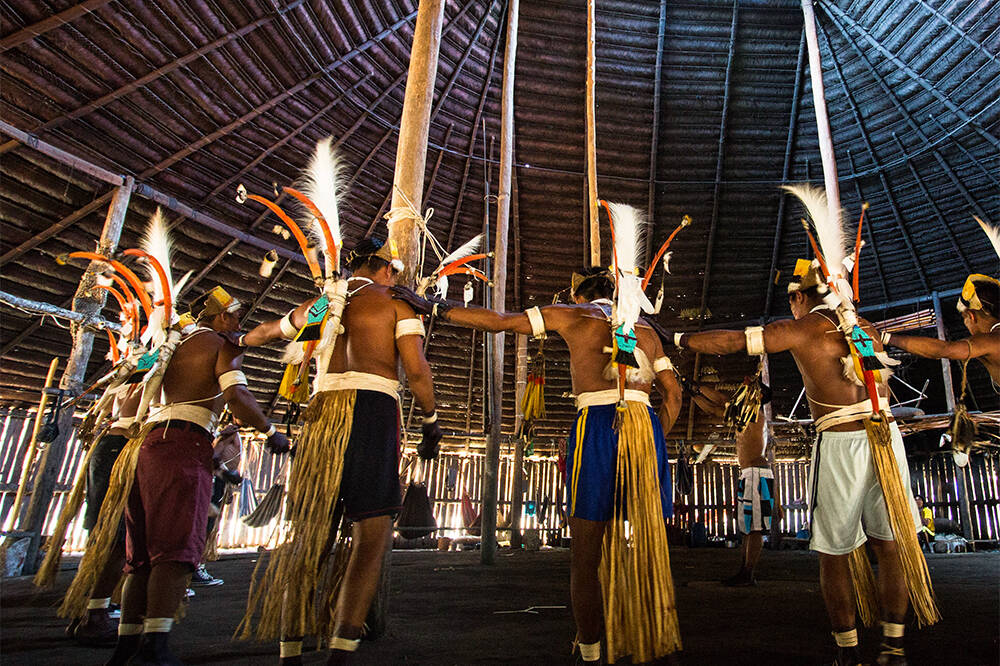The Amazon is crucial to avert the global climate crisis
Protecting the “Last Flying River” of the Amazon is central to maintaining the integrity of the Amazon and ensures that the Amazon can continue to play a positive role in maintaining human life on earth.
While the Amazon is often referred to as the “lungs” of the world because of its incredible capacity to absorb climate-change-inducing CO2, it’s lesser known yet equally impressive quality is that of the “Last Flying River”.
The trees act as a pump that pulls moisture from the Atlantic Ocean, which then falls as rain over the forest. This process runs in the opposite direction of the Amazon River which creates a sort of conveyor belt that replaces the water that is drained into the ocean every day. Scientists estimate Brazil would be largely arid without this system intact, and deforestation practices have caused serious droughts.
Human activity such as logging and illegal deforestation for farming is causing fragmentation of the forest which can disrupt this “Flying River” and puts much of the Amazon and southern South America at risk of drought and without it, all of humanity cannot survive.
And now, increased pressures on the forest brought on by corporate mining will result in more fragmentation, threatening the future of the Last Flying River even more than ever.
The integrity of the Amazon Rainforest and the Last Flying River are critical to climate resiliency, and an international campaign to save the Amazon would give the world a better chance at fighting climate change.
Besides this, the area is host to a rich biodiversity and its ecological system of flora and fauna is unique to this part of the world. The species’ richness is internationally renowned and beloved.
The sovereignty of the Indigenous communities and the ecological integrity of the Amazon are being undermined by bad actors and junior mining corporations with Canadian connections. We need Canadian intervention to adhere to our international obligations and because these actions are incongruent with our national values.
Support/oppose Canadians and the Canadian government taking steps to actively support the integrity of the Amazon’s Flying River
By saving the Last Flying River of the Amazon Rainforest we are:
- Enshrining the role of Indigenous peoples in the Amazon as deciders and protectors of the forest.
- Substantially assisting the global effort to avert a planetary climate crisis.
- Safeguarding the integrity of the largest remaining continuous tropical rainforest in the world.
- Eradicating corporate abuses in the Amazon and ensuring that the conduct of companies operating there comply with specific business and human rights standards.
- Ensuring sustainability of the water in the continent.

Averting a global climate crisis
9 out of 10 Canadians understand that protecting the Amazon Rainforest is important in the fight against climate change.
Recently, a high-level scientific report on climate change was released and faced with a scenario of increasing temperatures and extreme weather events, it is more urgent than ever to protect regions of great biodiversity that play an important role in regulating the global climate, such as the Amazon. Why? Here are some considerations from Gaia Amazonas:
- The Amazon stores 25% of the world’s carbon.
- The Amazon contains 90-140 billion metric tons of carbon, the release of even a portion of which would accelerate global warming significantly.
- It houses at least 10% of the world’s known biodiversity and is the home ground of more than 16,000 different species of trees, 2.5 million insect species, 40,000 plant species, 2,200 fish species, 1,300 bird species, 427 mammals, 430 amphibian species and 380 reptiles.
- The Amazon river accounts for 15-16% of the world’s total river discharge into the oceans.
- During the last half century, the seemingly endless Amazon has lost at least 17% of its forest cover, its ecosystem connectivity has been increasingly disrupted, and numerous endemic species have been subjected to waves of resource exploitation.
- Currently, land conversion and deforestation in the Amazon release up to 0.5 billion metric tons of carbon per year, not including emissions from forest fires.
- According to the latest MapBiomas report of the Amazon Geo-referenced Socio-environmental Information Network (RAISG), during the last 35 years the Amazon rainforest lost almost 8% of its extension: 69 millions of hectares.
The world needs a rapid and sustained reduction of greenhouse gasses to mitigate rising global temperatures. Every half a degree increase radically aggravates the effects felt by humans and ecological systems. Although a rapid response to reduce emissions is urgent, it can be complemented with effective and low-cost actions such as the maintenance of ecosystems in bioregions that play an important role in regulating the climate and that provide mechanisms that “cool ”the planet, such as the Amazon.





